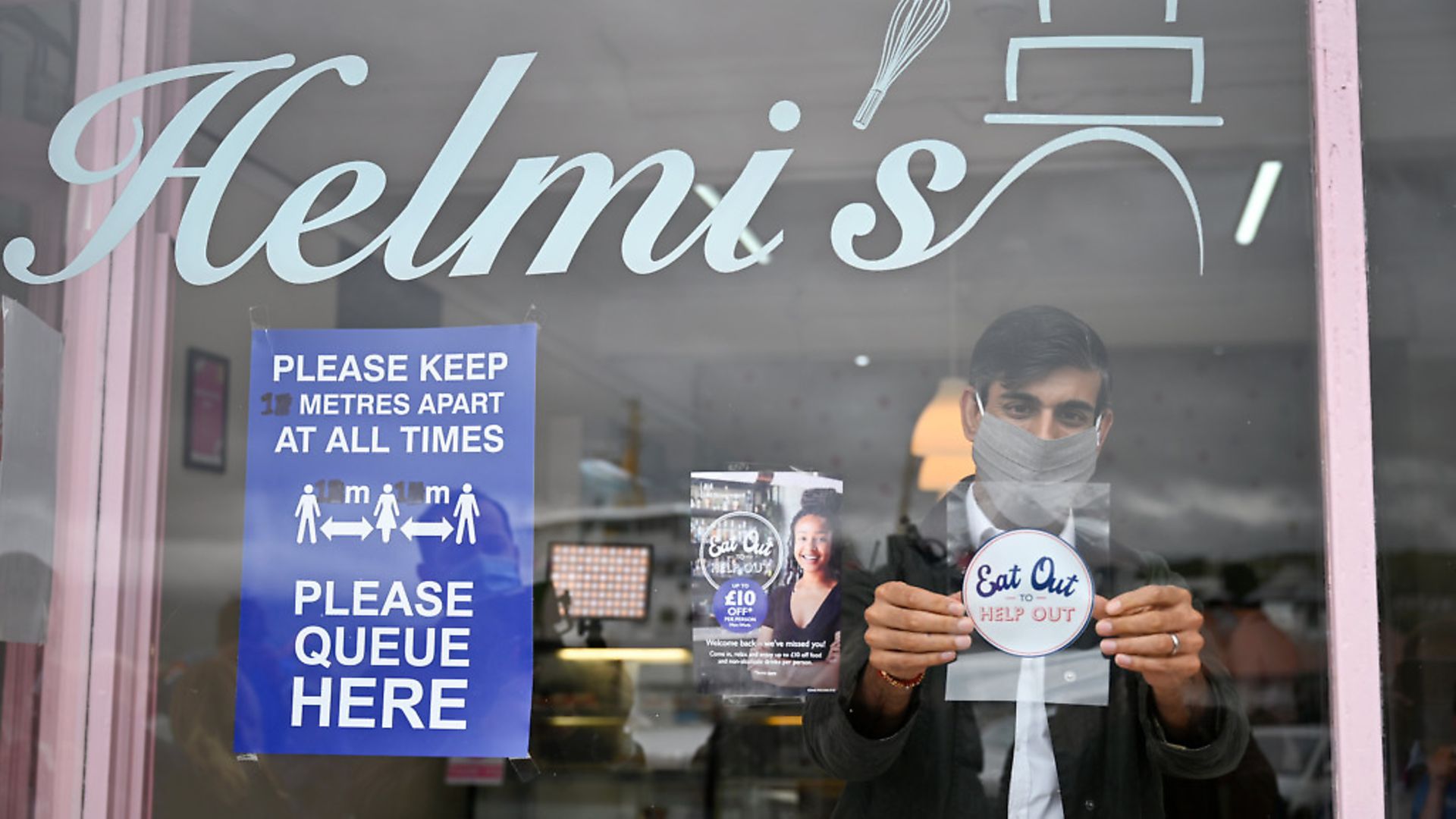
Rishi Sunak’s Eat Out to Help Out scheme may be to blame for a uptick in coronavirus cases in the UK, a report suggests.
An investigation by the University of Oxford said the scheme had led to an ‘extravagant’ surge in people eating out.
‘By the start of August, restaurant attendance had already bounced back to near 2019 levels. People were basically going out as normal, so the half-price discount scheme didn’t encourage a ‘return to normal’; it encouraged extravagant levels of eating out,’ Oxford University researcher Toby Phillips explained.
‘But when the scheme ended, things went right back to where they would have been. At the start of September there were more outings than at the start of August, but no more than would have been expected based on the long-term trend of reopening. There seems to be virtually no lasting impact on people’s consumption.’
The latest figures suggest a correlation between the scheme and the sudden rise in coronavirus transmission rates, with 3,000 more infections recorded in the past 24-hours.
‘At the same time as the scheme was operating, the UK started to see an uptick in COVID-19 cases. This overwhelmed testing capacity and caused some regions to reimpose restrictions,’ the report stated.
It said that people returning from summer holidays and the fact people were spending more time with friends were contributing to the rise.
‘Transmission rates were already creeping up in early August, before there could have been any effect from the Eat Out scheme,’ the report’s authors added.
‘The rapid acceleration in the proportion of detected positive cases at the start of September is consistent with cases where infection occurred in mid-August.
‘It’s certainly worth considering the effect of a £10 discount at the pub. And the effect of concentrating people’s outings on just three days of the week.’
England has seen the steepest rise in cases since April, when the virus hit its peak, and this has promoted the government to introduce a raft of measures to curb social interactions.
On Tuesday, prime minister Boris Johnson said it would illegal for groups of larger than six people to meet up from Monday.
The report’s authors said policymakers should ‘heed the lessons from this experience’ rather than encourage a ‘big-bang’ return to normal.
‘Governments should settle in for the long haul: encouraging and establishing patterns of behaviour that are safe and consistent with a pandemic,’ it said.
The report suggests an extension of subsidised loans, debt support and payroll help to support struggling businesses long-term.
‘If the goal is to get people out and spending on high streets, policies should also be designed to keep people spread out (for example, allowing people to spread consumption across the week, and including take-out).’
Warning: Illegal string offset 'link_id' in /mnt/storage/stage/www/wp-includes/bookmark.php on line 357
Notice: Trying to get property 'link_id' of non-object in /mnt/storage/stage/www/wp-includes/bookmark.php on line 37






